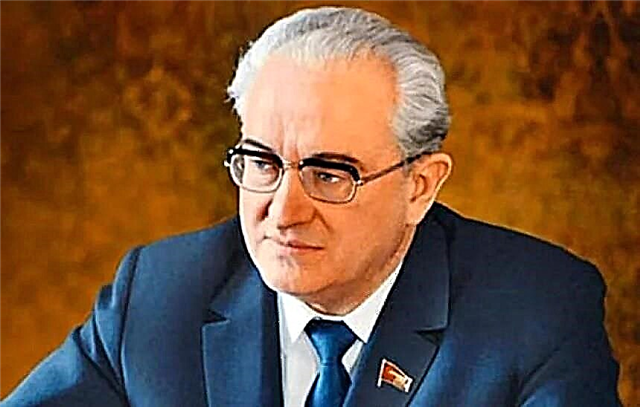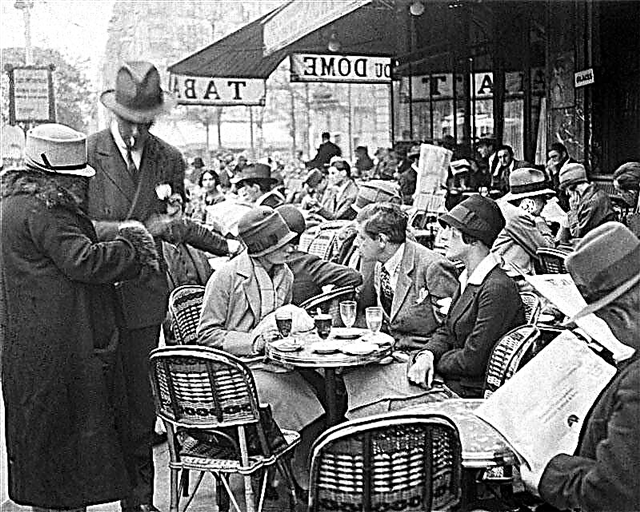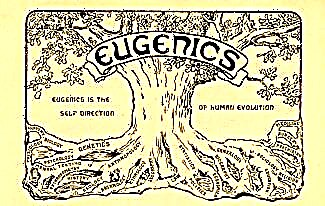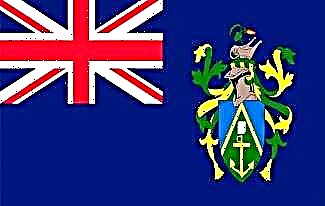Bertrand Arthur William Russell, 3rd Earl Russell (1872-1970) - British philosopher, logician, mathematician, writer, historian and public figure. Promoter of pacifism and atheism. He made an invaluable contribution to mathematical logic, the history of philosophy and the theory of knowledge.
Russell is considered one of the founders of English neorealism and neo-positivism. In 1950 he was awarded the Nobel Prize in Literature. Considered one of the brightest logicians of the 20th century.

There are many interesting facts in Russell's biography, which we will talk about in this article.
So, here is a short biography of Bertrand Russell.
Russell's biography
Bertrand Russell was born on May 18, 1872 in the Welsh county of Monmouthshire. He grew up and was raised in the aristocratic family of John Russell and Katherine Stanley, which belonged to an old line of politicians and scientists.
His father was the son of the Prime Minister of England and the leader of the Whig party. In addition to Bertrand, his parents had a boy Frank and a girl Rachel.
Childhood and youth
Many of Bertrand's relatives were distinguished by their education and high position in society. Russell Sr. was one of the founders of pacifism, the theory of which was formed in the 19th century and became popular several decades later. In the future, the boy will become an ardent supporter of his father's views.
Bertrand's mother actively fought for the rights of women, which incurred hostility from Queen Victoria.

An interesting fact is that by the age of 4, the future philosopher became an orphan. Initially, his mother died of diphtheria, and a couple of years later, his father died of bronchitis.
As a result, the children were raised by their grandmother, Countess Russell, who adhered to the Puritan views. The woman did everything necessary to provide her grandchildren with a decent education.
Even in early childhood, Bertrand developed an interest in various areas of natural science. The boy spent a lot of time reading books, and was also fond of mathematics. It is worth noting that even then he told the devout countess that he did not believe in the existence of the Creator.
Having reached the age of 17, Russell successfully passed the exams at Trinity College, Cambridge. He later received a Bachelor of Arts degree.
During this period of his biography, he became interested in the works of John Locke and David Hume. In addition, he studied the economic works of Karl Marx.
Views and philosophical works
After becoming a graduate, Bertrand Russell was appointed a British diplomat, first in France and then in Germany. In 1986 he published the first significant work "German Social Democracy", which brought him great fame.
Upon returning home, Russell was allowed to give lectures on economics in London, which made him even more popular.
In 1900 he received an invitation to the World Philosophical Congress in Paris, where he was able to meet world-class scientists.

In 1908, Bertrand became a member of the Royal Society, the leading scientific organization in Britain. Later, in collaboration with Whitehead, he published the book Principia Mathematica, which brought him worldwide recognition. The authors stated that philosophy interprets all natural sciences, and logic becomes the basis of any research.
Both scientists were of the opinion that truth can only be grasped empirically, that is, through sensory experience. Russell paid great attention to the state structure, criticizing capitalism.
The man argued that all spheres of industry should be run by working people, and not by entrepreneurs and officials. It is curious that he called the strength of the state the main cause of all misfortunes on the planet. In matters of elections, he advocated the equality of men and women.
On the eve of the First World War (1914-1918) Russell was imbued with the ideas of pacifism. He is a member of the society - "Counteraction to conscription", which caused outrage among the current government. The man urged his compatriots to refuse to serve in the army, for which he was brought to trial.
The court ruled to recover a fine from Bertrand, confiscate his library and deprive him of the opportunity to visit America to lecture. Nevertheless, he did not renounce his convictions, and for critical statements in 1918 he was imprisoned for six months.
In the cell, Russell wrote an Introduction to Mathematical Philosophy. Until the end of the war, he continued to conduct anti-war activities, actively promoting his ideas. Later, the philosopher admitted that he admired the Bolsheviks, which caused even more discontent among the authorities.

In 1920, Bertrand Russell went to Russia, where he stayed for about one month. He personally communicates with Lenin, Trotsky, Gorky and Blok. In addition, he is given the opportunity to lecture at the Petrograd Mathematical Society.
In his free time, Russell communicated with the common people and became increasingly disillusioned with Bolshevism. Later, he began to criticize communism, calling himself a socialist. At the same time, he stated that, to a certain extent, the world still needed communism.
The scientist shared his impressions of the trip to Russia in the book "Bolshevism and the West". After that, he visited China, as a result of which his new work entitled "The Problem of China" was published.
During the biography of 1924-1931. Russell has lectured in various American cities. At the same time, he became interested in pedagogy. The thinker criticized the English education system, calling for the development of creativity in children, as well as getting rid of chauvinism and bureaucracy.
In 1929, Bertrand published the book "Marriage and Morality", for which he received the Nobel Prize for Literature in 1950. The creation of nuclear weapons greatly oppressed the philosopher, who throughout his life called people to peace and harmony with nature.
In the mid-1930s, Russell openly criticized Bolshevism and fascism, devoting several works to this topic. The approach of World War II forces him to reconsider his views on pacifism. After Hitler's capture of Poland, he finally renounces pacifism.
Moreover, Bertrand Russell called on Britain and the United States to take joint military action. In 1940 he became Professor of Philosophy at City College of New York. This caused outrage among the clergy, against whom he fought and promoted atheism.
After the end of the war, Russell continued to write new books, speak on the radio, and lecture to students. In the mid-1950s, he was a supporter of the Cold War policy because he believed that it could prevent the Third World War.
At this time, the scientist criticized the USSR and even considered it necessary to force the Soviet leadership to submit to the United States under the threat of atomic bombings. However, after the atomic bomb appeared in the Soviet Union, he began to advocate a complete ban on nuclear weapons throughout the world.
Social activity
In the course of the struggle for peace, Bertrand Russell called on all of humanity to abandon nuclear weapons, since in such a war there will be no winners, only losers.
The Russell-Einstein Declaration of Protest led to the creation of the Pugwash Scientist Movement, a movement advocating for disarmament and the prevention of thermonuclear war. The activities of the British made him one of the most famous peace fighters.
At the height of the Cuban missile crisis, Russell turned to the leaders of the United States and the USSR - John F. Kennedy and Nikita Khrushchev, urging them to the need for peace negotiations. Later, the philosopher criticized the entry of troops into Czechoslovakia, as well as the participation of the United States in the war in Vietnam.
Personal life
Over the years of his personal biography, Bertrand Russell was married 4 times, and also had many mistresses. His first wife was Alice Smith, whose marriage was unsuccessful.
After that, the man had short affairs with various girls, including Ottolin Morrell, Helen Dudley, Irene Cooper Ullis and Constance Malleson. The second time Russell went down the aisle with the writer Dora Black. In this union, the couple had a boy and a girl.
Soon, the couple decided to leave, since the thinker started an affair with young Joan Falwell, which lasted about 3 years. In 1936, he proposed to Patricia Spencer, the governess of his children, who agreed to become his wife. An interesting fact is that Bertrand was 38 years older than his chosen one.

Soon the newlyweds had a boy. However, the birth of a son did not save this marriage. In 1952, the thinker divorced his wife, falling in love with the writer Edith Fing.
Together they participated in rallies, traveled to different countries and engaged in anti-militarist activities.
Death
Bertrand Russell died on February 2, 1970 at the age of 97. The flu was the cause of his death. He was buried in Gwyneth County, Welsh.
Today, the works of the Briton are very popular. In the comments to the memorial collection "Bertrand Russell - the philosopher of the century" it was noted that Russell's contribution to mathematical logic is the most significant and fundamental since the time of Aristotle.
Photo by Bertrand Russell


















